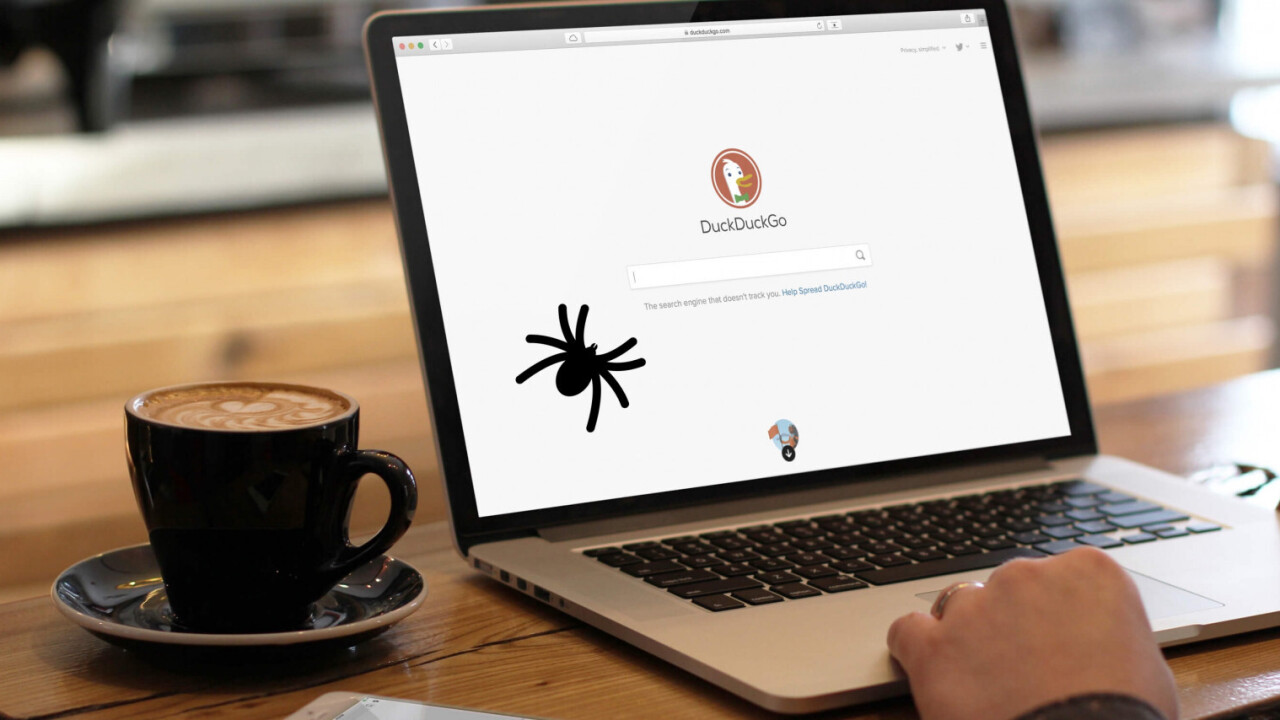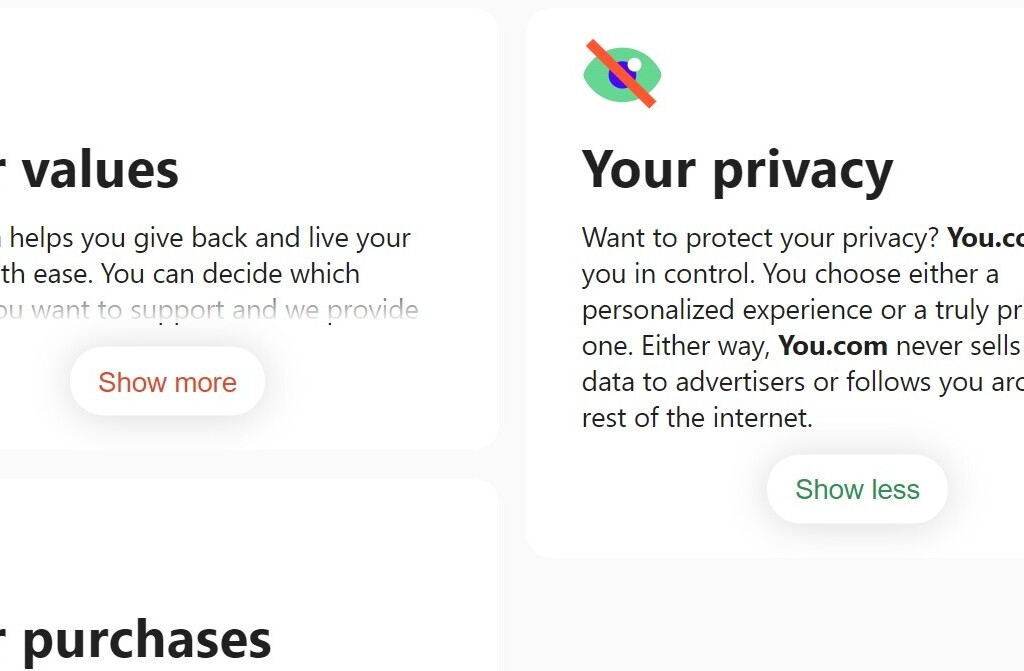
Privacy-focused search engine DuckDuckGo has released a new service, called the Tracker Radar, to block unwanted trackers that collect your browsing data.
The service is an open-sourced and continuously updated list of common trackers with details such as tracking behavior, prevalence, ownership, fingerprinting behavior, cookie behavior, and privacy policy.
DuckDuckGo says anyone can make use of this tool: individuals can use it through the company’s mobile browser or desktop browser extensions, developers can use the code to embed the whole list in their apps or websites, and researchers can utilize it to learn more about trackers.
[Read: How cameras in public spaces might change how we think]
In its blog post, the company noted that only 19% of surveyed web users use tools to block trackers, and they might not be effective. One of the popular blocker lists, EasyList, has over 100,00 URLs, but it’s managed manually. Plus, a study published by Brave browser in 2018 suggests 90% of the list is of little use and contains many expired rules.
So, DuckDuckGo decided to use its own updated crawlers — bots that automatically browse the web to identify specific— to build a new list. For the initial list, the crawler examined the top 50,000 sites to find the most common trackers.

Browsers have been slowly cracking down on trackers to ensure the privacy of users when they visit various sites. Apple’s Intelligent Tracking Prevention kit tries to reduce tracking by limiting cookies and other website data.
Firefox has also made several additions to its Mozilla browser that prevent marketers from getting your data. And while Google Chrome, the world’s most popular browser, has taken some steps towards enhancing privacy recently, they aren’t as robust as the aforementioned initiatives.
DuckDuckGo has also invited other browsers to use this list to block trackers. Opera co-founder Jon von Tetzchner’s Vivaldi browser has already come on board.
You can check out DuckDuckGo’s Tracker Radar code here.
Get the TNW newsletter
Get the most important tech news in your inbox each week.




